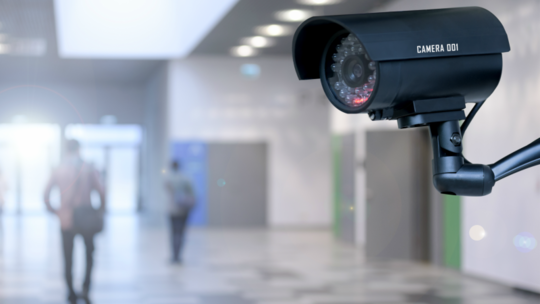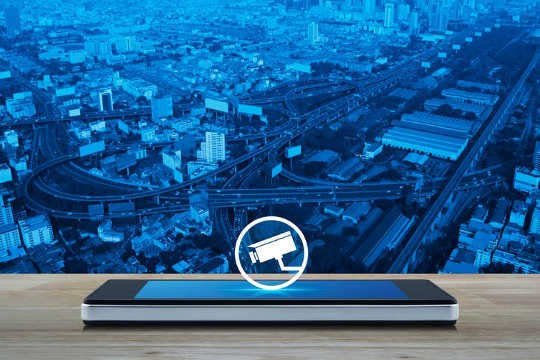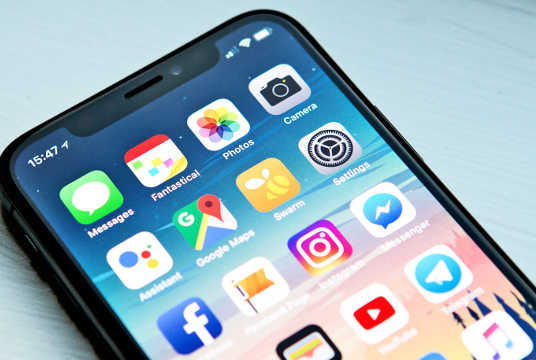
Pauses in answers, body movements, elusive or angry looks, confusion, anxiety — the facial expressions and gestures made by witnesses matter in court. Conclusions about the credibility of witnesses can hang on their nonverbal behaviour.

The 2017 Stress in America survey has confirmed it: Americans are officially freaking out.

Surveillance used to be expensive. Even just a few years ago, tailing a person’s movements around the clock required rotating shifts of personnel devoted full-time to the task. Not any more, though.

Veganism is on the rise globally – but it can be contentious. Only recently, the editor of a food magazine joked that vegans should be force-fed meat while a bank employee told a vegan customer that they should be punched after he objected to some vegan graffiti near his home.

Microsoft has announced that it will close the books category of its digital store. While other software and apps will still be available via the virtual shop front, and on purchasers’ consoles and devices,

When it comes to car hacking, you should be more worried about dodgy dealers than one-off hackers with criminal intent.
- By James Parker

Smart speakers equipped with digital voice assistants such as Siri and Alexa are now the fastest-growing consumer technology since the smartphone.
- By Nour Halabi

Ever since his days on the election campaign trail the US president, Donald Trump, has assured voters of his intentions to build a wall along the US border with Mexico.

The political economy of digital capitalism is largely premised on a new exchange: individuals enjoy cheap or free services and goods in exchange for their personal information.

Advanced automatic dialing systems make it easier and cheaper for small operations to generate huge numbers of calls.
- By Emilee Rader

Sixty-seven percent of smartphone users rely on Google Maps to help them get to where they are going quickly and efficiently.

What can we do about looming threats to our privacy online and the theft of important personal information? Ari Trachtenberg has some ideas.

Anyone who’s watched “Bridget Jones’s Diary” knows one of her New Year’s resolutions is “Not go out every night but stay in and read books and listen to classical music.”
 It’s tempting to give up on data security altogether, with all the billions of pieces of personal data – Social Security numbers, credit cards, home addresses, phone numbers, passwords and much more – breached and stolen in recent years.
It’s tempting to give up on data security altogether, with all the billions of pieces of personal data – Social Security numbers, credit cards, home addresses, phone numbers, passwords and much more – breached and stolen in recent years.
- By Jen King
 Technology companies have been pummeled by revelations about how poorly they protect their customers’ personal information, including an in-depth New York Times report detailing the ability of smartphone apps to track users’ locations.
Technology companies have been pummeled by revelations about how poorly they protect their customers’ personal information, including an in-depth New York Times report detailing the ability of smartphone apps to track users’ locations.
 Data breaches, widespread malware attacks and microtargeted personalized advertising were lowlights of digital life in 2018.
Data breaches, widespread malware attacks and microtargeted personalized advertising were lowlights of digital life in 2018.
- By Gideon Yaffe
 Should being under 18 give youth a discount on the price to pay for their crimes? As a matter of conscience, it should – even kids such as Cunningham deserve a break. In fact, in every mature legal system, age matters
Should being under 18 give youth a discount on the price to pay for their crimes? As a matter of conscience, it should – even kids such as Cunningham deserve a break. In fact, in every mature legal system, age matters
 New research digs into the behaviors—both obvious and subtle—that may put you at risk of falling victim to cybercrime involving Trojans, viruses, and malware.
New research digs into the behaviors—both obvious and subtle—that may put you at risk of falling victim to cybercrime involving Trojans, viruses, and malware.
- By Jeff Inglis
![]() If you have a smartphone, it probably is a significant part of your life, storing appointments and destinations as well as being central to your communications with friends, loved ones and co-workers.
If you have a smartphone, it probably is a significant part of your life, storing appointments and destinations as well as being central to your communications with friends, loved ones and co-workers.
- By Ivy Brashear
 How marginalized groups are working to counteract historical wealth inequality.
How marginalized groups are working to counteract historical wealth inequality.
 Hackers are watching you this holiday season, so be as mindful of your phone as of your cash and credit cards.
Hackers are watching you this holiday season, so be as mindful of your phone as of your cash and credit cards.
 Researchers have created a new method for keeping private the data that our many devices collect about how we use them.
Researchers have created a new method for keeping private the data that our many devices collect about how we use them.

In 2008, Newsweek published an article on then-presidential candidate Barack Obama titled “From Barry to Barack.” The story explained how Obama’s Kenyan father, Barack Obama Sr., chose Barry as a nickname for himself in 1959 in order “to fit in.” But the younger Barack – who had been called Barry since he was a child – chose to revert to his given name, Barack, in 1980 as a college student coming to terms with his identity.
















